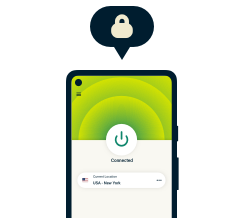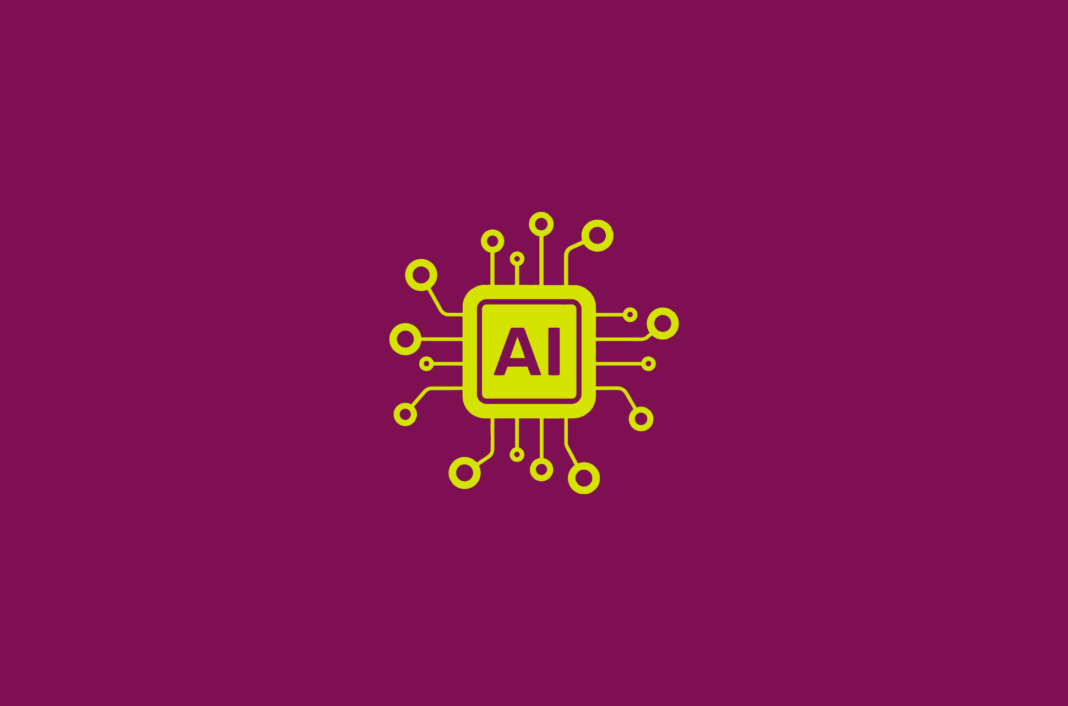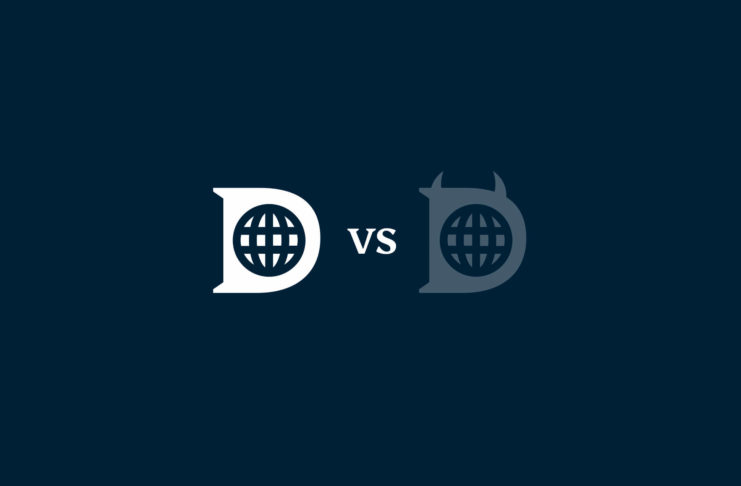Your computer is great for everyday tasks but less for running AI models, processing massive datasets, or creating lifelike 3D graphics. That’s where AI PCs come in. These machines have special hardware that can handle complex tasks, like running simulations and machine learning processes, which demand high processing power.
Think of an AI PC as a regular computer on steroids. Imagine being able to run real-time data analysis, automate mundane tasks, and even create detailed 3D models without breaking a sweat. In this article, you’ll learn what makes an AI PC different from a regular computer, its benefits and drawbacks, and whether you should upgrade to one.
Jump to…
What is an AI PC?
AI PC vs regular PC: What’s the difference?
Are AI PCs more powerful than regular PCs?
What to consider before buying an AI PC
Conclusion: Should you get an AI PC?
What is an AI PC?
AI PCs are being released by more and more computer brands, including HP, Lenovo, Dell, Acer, Asus, and Samsung.
An AI PC is designed to handle complex AI tasks smoothly. These computers have a Neural Processing Unit (NPU) that works alongside the CPU and GPU. This boosts performance for tasks like image recognition, natural language processing, and other machine-learning activities. The NPU takes on the heavy AI workload, making everything run more efficiently.

Regular PCs are good at following instructions, but AI PCs can adapt and learn. They can help you with everyday tasks by understanding your voice or even what you’re looking at on the screen. For example, an AI PC might suggest edits to your writing or help you find the perfect filter for your photos.
AI PC vs. regular PC: What’s the difference?
Regular PCs are workhorses, but AI PCs are racehorses. The main difference is that AI PCs have an NPU, a specialized processor that can handle large-scale matrix multiplications and parallel computations required for machine learning and deep learning. This makes an AI PC great for tasks like image and speech recognition, natural language processing, and more.
Benefits of AI PCs
AI PCs excel in handling AI tasks
AI PCs have a Neural Processing Unit (NPU) that specializes in AI and machine learning tasks. This allows AI PCs to manage complex computations more efficiently than regular PCs, which rely solely on the CPU and GPU. Here’s what an AI PC is used for and excels at:
- Real-time language translation. NPUs can quickly analyze sentence structure, meaning, and provide accurate translations on the spot. The data moves so fast that there’s no lag between your speech and the translation.
- Photo editing. NPUs can identify and remove unwanted elements from images, such as photobombers. They can also sharpen blurry photos and apply artistic styles, making photo editing much faster.
- Video editing. NPUs handle large video files efficiently, analyzing video frames to add effects, stabilize shaky footage, and make basic cuts or transitions much quicker than traditional methods.
- Spot faces and objects. An NPU can analyze vast amounts of picture data to find objects, faces, and even emotions. It can improve security systems, suggest things you like online, and even spot abnormalities in medical scans invisible to the naked eye.
AI PCs are faster and more efficient
An NPU in a high-end AI PC can process trillions of operations per second. It offloads intensive AI tasks from the CPU and GPU so they can focus on their core functions, resulting in smoother performance and less thermal throttling. AI PCs also have high-bandwidth memory interfaces like DDR5 that enable faster data exchange and better multi-tasking than regular PCs.
Regular CPUs and GPUs are fantastic all-rounders, but they weren’t built specifically for the unique demands of AI tasks. Here’s how NPUs turbocharge AI PCs:
- Specialized architecture. NPUs have a different architecture than CPUs and GPUs. They have many simple processing cores arranged in a way that can handle a large number of repetitive calculations in machine learning algorithms.
- Efficient data flow. AI tasks manipulate massive amounts of data, and NPUs can handle this data flow more effectively. It’s like a wider highway that allows more data to pass through so that information can zip around quickly for faster processing.
- AI-tuned instructions. CPUs understand a broad set of instructions, while NPUs are programmed for a specific set of AI-focused instructions. This allows the NPU to perform these tasks with fewer steps and less wasted processing power compared to a CPU.
AI PCs provide better security for sensitive data
Unlike traditional PCs that rely on cloud-based processing for AI tasks, AI PCs handle these computations directly on your device. This local processing approach is more privacy-friendly for both personal and business use. It also cuts down on lag, making real-time AI tasks like fraud detection and autonomous driving faster and more reliable.
- Less chance of data breaches. With an AI PC, your sensitive data never leaves your device. This eliminates the risk of data breaches or unauthorized access that can occur when information is transmitted to and stored on cloud servers.
- Offline access. AI PCs can perform AI tasks even without an internet connection. This is particularly useful when you’re traveling and don’t have internet access but still need to use AI features like on-device translation tools.
Drawbacks of AI PCs
AI PCs are more expensive
Regular PCs are typically less expensive than AI PCs because they do not have an NPU. If you don’t need AI capabilities, a regular PC is a more budget-friendly option that still meets everyday computing needs, like web browsing, document editing, and media consumption.
Regular PCs still meet most everyday needs
Most people don’t need an AI PC. With a regular PC, you can browse the web, consume media, do most of your work, and even play games on a traditional computer. Plus, many regular PCs are upgradeable, allowing you to adapt them to future needs.
Are AI PCs more powerful than regular PCs?
Yes, AI PCs are generally more powerful. This power comes from their ability to handle complex tasks more efficiently due to advanced hardware designed for AI workloads. For example, an AI PC’s NPU excels at matrix multiplications, which makes specialized tasks like training deep learning models run faster.
Regular PCs are fine for everyday browsing, emails, and videos, but they get bogged down by heavy AI workloads. If you’re working with cutting-edge AI models or massive datasets, an AI PC is a better choice. Otherwise, a regular PC offers plenty of power for normal, everyday tasks at a lower cost.
What to consider before buying an AI PC
Choosing an AI PC isn’t just about looking at specs. You need to ensure it fits your specific needs and budget. Here are key factors to consider:
Understand your needs
Identify your primary tasks. If you work with data analysis, machine learning, or 3D rendering, an AI PC’s specialized hardware is your best bet. For instance, deep learning projects benefit from Tensor cores in NVIDIA GPUs. However, if your tasks are limited to web browsing, office work, or casual gaming, a standard PC will suffice.
Compare performance benchmarks
Compare regular PCs and AI PCs with different NPUs (Neural Processing Units). Look for benchmarks targeting your specific AI tasks, such as TensorFlow, PyTorch, or other machine learning frameworks. Understand how each NPU handles tasks like image recognition, natural language processing, or predictive analytics. Real-world benchmarks can show how much faster your tasks will run on an AI PC compared to a regular PC.
Budget considerations
AI PCs come with costly advanced components. Balance the upfront cost with the potential productivity gains. For example, an AI PC might reduce your model training time from days to hours, justifying the higher price. Consider future upgrade paths for RAM, storage, and additional GPUs, as these can extend the machine’s useful life and performance.
Software compatibility
Check if the software you use is optimized for AI hardware. For instance, some machine learning libraries are optimized for NVIDIA’s CUDA cores. Ensure your applications can leverage the full potential of your AI PC to avoid underutilization of expensive hardware. Consult software vendors and check user forums for compatibility issues and performance feedback.
Hardware specifications
Look for high-performance CPUs like AMD Ryzen 9 or Intel i9, GPUs with ample VRAM such as the NVIDIA RTX series, and at least 32GB of RAM. AI PCs often include specialized chips like Google’s Tensor Processing Units (TPUs). Ensure these specs align with your specific needs, like faster data processing or real-time AI inference.
Battery life
AI tasks can drain the battery quickly. If portability is a must-have for you, look for laptops with efficient power management. Consider models with large batteries and power-efficient components like AMD’s Ryzen mobile CPUs. Check reviews for real-world battery performance during AI tasks, not just general usage scenarios.
Security features
AI PCs can offer advanced security, especially for local data processing. Look for features like hardware encryption, secure boot, and trusted platform modules (TPMs). If your work involves sensitive data, these features can protect against unauthorized access and ensure data integrity. Evaluate the security capabilities of the AI PC’s operating system and software ecosystem to match your specific security requirements.
Conclusion: Should you get an AI PC?
Deciding whether to buy an AI PC depends on your specific needs and usage. If your work involves AI-heavy tasks like machine learning, data analysis, or advanced graphics, an AI PC can significantly boost your productivity and performance. These PCs are equipped with specialized hardware to handle complex computations efficiently.
However, if your primary tasks are general use like browsing, office work, and media consumption, a regular PC will suffice. AI PCs are more expensive, so consider if the enhanced capabilities are worth the investment for your needs. For most users, a regular PC provides ample performance at a lower cost
FAQ: About AI PCs
What is the most powerful AI computer?
As of 2024, the most powerful AI computer is the Isambard-AI supercomputer in the UK. It boasts over 200 petaflops of computing performance, meaning it can perform 200 quadrillion calculations per second. To put this in perspective, Isambard-AI can handle tasks that would take traditional PCs years to complete in just seconds. For example, it can simulate climate models, accelerate drug discovery, and analyze astronomical data.
What laptop should you buy for artificial intelligence?
For AI tasks, the HP Spectre x360 14 (2024) is an excellent choice. It features an Intel Core Ultra 7 155H CPU, integrated Intel Arc graphics, and an NPU for AI tasks. This combination provides a balanced performance, making it ideal for handling AI applications efficiently. Additionally, its 14-inch OLED display and sleek design make it both powerful and portable.
How do I install AI on a PC?
To install AI on a PC, you typically need software frameworks like TensorFlow or PyTorch. First, ensure your PC has compatible hardware, like a high-performance CPU and GPU. Then, download and install the necessary software and libraries from their official websites. Many AI applications also offer installation guides to help you set up your environment correctly. For specialized tasks, you might need to install specific AI models or datasets relevant to your needs.
Who needs an AI PC?
You need an AI PC if your work involves intensive AI tasks such as machine learning, data analysis, or advanced graphics processing. Professionals in fields like data science, AI research, and creative industries can benefit significantly from the enhanced performance and efficiency of AI PCs. If your daily tasks involve running complex simulations or handling large datasets, an AI PC can offer substantial productivity gains.

Protect your privacy with the best VPN
30-day money-back guarantee























